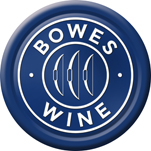Paris Redux cont.
The tasting was to be at the RAC Club in Pall Mall and I arrived rather earlier than the 5 o'clock stipulated by the banqueting manager (there were some dedicated lunchers using the room before us), giving me the opportunity to nip into Farlow's for a few bits and bobs I am lacking for the fishing season to come.
Having made myself known to the staff on arrival at the RAC, I was shown into a kitchen where began the task on double decanting all the wines. This entails pouring the contents of each into a jug, washing out the bottle and then pouring back into the original glass. It all takes quite a while, as you might imagine. And it was interesting to note that all the Bordeaux corks came out straight and true, whilst most of the Americans broke at some stage of withdrawal.
Here's the list of what we tasted on the evening. They are all of the 1990 vintage:
Château Cos d'Estournel, St Estèphe
Château Grand-Puy-Lacoste, Pauillac
Château Pichon-Longueville Comtesse de Lalande, Pauillac
Château Pape-Clément, Pessac-Léognan
Cabernet Sauvignon Reserve Martha's Vineyard, Heitz Cellars
Dominus, Mouiex
Cabernet Sauvignon Monte Bello, Ridge Vineyards
Cabernet Sauvignon Special Selection, Caymus Vineyards
When the results of the original exercise came dramatically to light in 1975, there was a shocked reaction. That California had won the day had significant repercussions. In France, it caused wine makers to completely re-evaluate traditional practices and start a process of modernisation. This was, of course, no bad thing. But at the same time, it sent out a message to California that, yes, their wine could be as good - if not better - than their French counterparts' and that, ipso facto, they were selling their produce far too cheaply. Prices for Californian wine rose dramatically and rapidly.
Finally, the world's wine drinkers - those people who look to the trade for guidance and, to a degree, education - were lead to believe that Californian wine is better than French wine. This was the message, if not the incontrovertible fact, of the tasting results.
Now, I must confess straightaway to doubting the credibility of the Judgement of Paris in the first instance. Would there be any merit in tasting Australian shiraz against a range of wines from Hermitage; Old and New World Riesling? Because wines of the same variety or blend are being produced in different countries around the world does not make them sufficiently similar to be worth a comparison.
A part of the problem of this exercise is, of course, that New World wines often give more pleasure than those of the Old World. They are riper in both fruit and tannin, perhaps have lower acidity; are rounder, smoother, softer. And I know that many wine writers and drinkers would profess that this is, ultimately, the bottom line: does it taste good? If so, it is good.
But this misses a vital point. By upping one's spend per bottle, is an upturn in pleasure all one is looking for? If this is the sole yardstick one uses when one buys wine, this should mean that the most delicious wines in the world are Latour, Romanée-Conti, Chave's Hermitage. And when one opens bottles of these wines and takes one's first sip, how often is our first comment "Wow that tastes good"? At this sort of level, one is looking to be impressed, to engage one's thought and, possibly, emotion. In other words, we seek something more than simple sensory gratification.
Before we started our version of the Judgement of Paris, I suggested that tasters might like to think about which wines they enjoyed most and which they thought were best. I thought it might be interesting to find out whether there was a disparity between these two lists.
The results? Well the Caymus came out top, with Pichon-Lalande close behind. At least one taster commented that he had voted for Caymus even though he considered it rather less complex than some of the other wines.
For my point of view, I thought it was interesting how un-claret-like were the Americans; how straightforward it was to tell the Old from the New World.
I also think that next time I taste a wine blind and get aromas and flavours of warm gravel and mocha I won't immediately jump in and label it a Pessac-Léognan. It just might be Cos!

